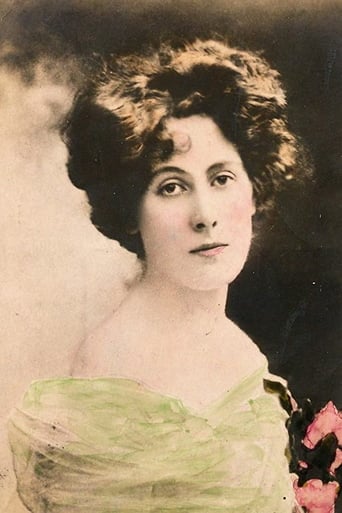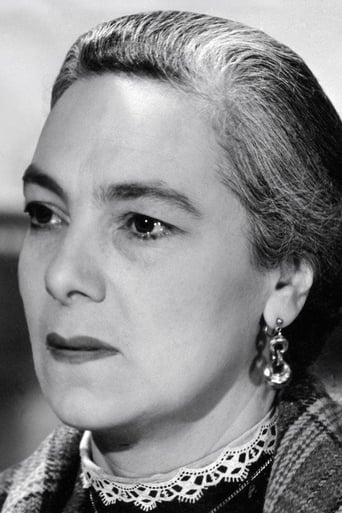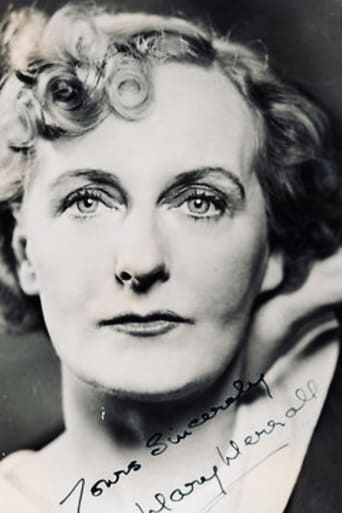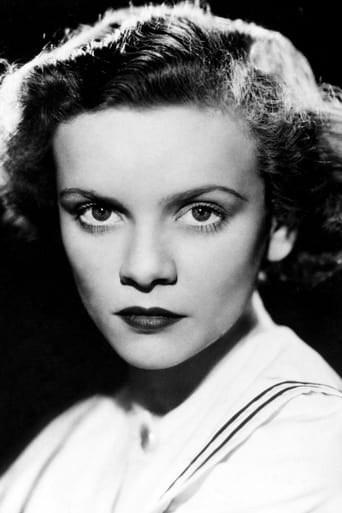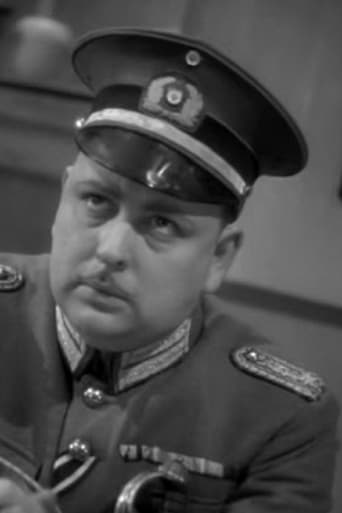Lovesusti
The Worst Film Ever
GamerTab
That was an excellent one.
Pluskylang
Great Film overall
ThedevilChoose
When a movie has you begging for it to end not even half way through it's pure crap. We've all seen this movie and this characters millions of times, nothing new in it. Don't waste your time.
paxveritas
The sisters are irritated when their successful younger half brother refuses to help them in their philanthropic plans to help the ill-starred community rebuild. They are positively miffed when he later decides to leave his secretary all his assets (including the family house) in his will. Greed and pride in their heritage takes over, philanthropy is set aside, and they begin a program of steady, unsuccessful assaults on their half brother and his secretary, who represent London and modernity.This interesting movie might as well have been titled "Escape from Wales." It is known that the script co-writer, the poet Dylan Thomas, took a dim view of Wales, his homeland, and one can't help but feel that the decrepitude of the sisters, and their fragile old house set in a bleak Welsh town where the mines are defunct, are emblematic of Wales as seen by the author and script writers.Logically, the half brother and secretary want to leave as soon as the danger is palpable, but are thwarted in doing so at every turn. A doctor (recipient of the sisters' philanthropy in the past) zigs in and zags out like a confused, allegiance-less mosquito, for most of the time until the very end.Nova Pilbeam as the secretary has a pleasingly crisp voice and comes across in 1948 as a Katharine Hepburn type, but is a much more natural actress than Hepburn, who usually announced her lines rather artificially instead of just saying them. Pilbeam was very good in Hitchcock's "Young and Innocent," and is better still in this film.For all its melodrama and its interspersed (overly poetic?) political moments, this is an engaging "dark houser" that holds one's interest from the first minute to the last.
Richard Chatten
'The Three Weird Sisters' was the feature film debut of director Daniel Birt, adapted by Louise Birt and Dylan Thomas from the novel 'The Case of the Three Weird Sisters' (1943) by Charlotte Armstrong. A barnstorming piece of Grand Guignol set in South Wales which meets 'The Old Dark House' going one way and 'The Addams Family' the other; it was a typically bold offering from Louis H. Jackson's ill-fated British National Pictures, which went into receivership the same year this film was released.Madness runs in some families, in the Morgan-Vaughan's it practically gallops. The attitude to physical disability displayed here would be considered well beyond the pale today, with the three sisters described as "blind, deaf and warped". Nancy Price (who is here blind, and four years later played a wise deaf woman in 'Mandy'), Mary Clare and Mary Merrall are a blast as the unholy three; especially Clare as deaf Maude, who unnervingly is the only one who's always smiling. The rest of the cast all pitch in enthusiastically, the one outsider to the valleys being the lovely but agitated-looking Nova Pilbeam in one of her last films.When a name as celebrated as Thomas's is associated with a project it's always tempting to attribute all its qualities to him, but both the crazy mood and the ripe, fruity dialogue certainly seem to have his finger prints all over them. You won't forget this in a hurry...!
noir guy
Co-scripted by Dylan Thomas, this tale of three ageing and infirm, although philanthropically inclined, spinster sisters presiding over a crumbling mansion in 1930s South Wales is an oddball post-War slice of Welsh Gothic. In their hermetically sealed universe, the sisters' otherworldly formalism is threatened, firstly, by a landslip caused by the family mine which destroys part of their small village at the outset and, secondly, by the return of their wealthy and apparently hard-hearted pragmatist brother and his primly efficient secretary, whose modernity further unravels the web of antiquity which has preserved their world. The narrative clunkiness is swiftly apparent from the somewhat obvious symbolism of the structural cracks and fissures which fracture the sisters' home at the beginning of the movie, and the stateliness of the family's surroundings is matched by similarly ossified pacing; Dylan Thomas' occasionally poetically barbed and witty insights notwithstanding. It's not just the old dark house that creaks here; even a nick of time climax does little to shore up the cracks of this crumbling edifice.
thomandybish
This film, whose screenplay was written by poet Dylan Thomas, concerns a lawyer and his young secretary who travel to the Welsh ancestral home of their client to alter his will. Seems the man is the youngest child and only male heir of a once pround family who controlled the local coal mine. The home is presided over by the man's three older sisters, each with a distinctive affliction: one is blind, one is virtually deaf, the other has painful arthritis that has molded her hands into claws. A series of bizarre events begin to occur, particularly to the man and the lawyer's secretary, that ultimately ends in a cataclysmic finale!What we have here is an old set of standards giving way to a new mindset and, to quote the poet himself, the old ways(or sisters)"do not go gentle into that good night"! These three women drift phantom-like through their gloomy mansion, exhibiting the kind of arcane Victorian propriety and claustrophobic narrowness only an isolated life in a wealthy, rarefied setting can bring. Their brother left the house and community to go to school and work, so he doesn't share their outlook. His reappearance, along with that of the free-thinking secretary, challenges the women's way of thinking. The sense of decay shown by the three sisters is heightened by the fact that the mine which has supported them is almost exhausted and, in fact, threatens the town above it by dent of the fact that the tunnels and caverns are dangerously near to collapse. A great sense of gloom and gothic atmosphere prevades the interior shots in the house. Interesting.
